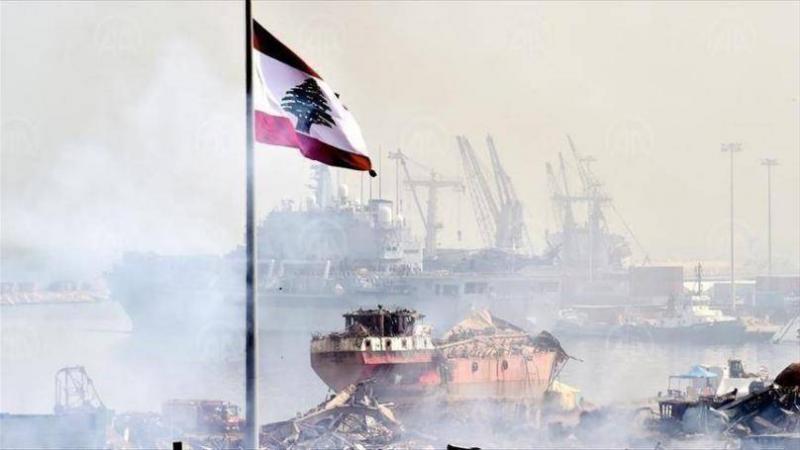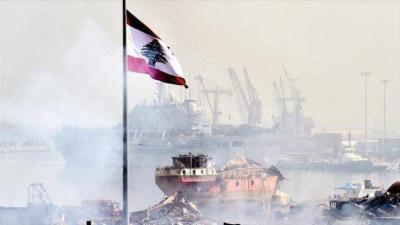French President Emmanuel Macron called yesterday for justice for the victims of the port explosion and expressed solidarity with the Lebanese people, assuring that he would not allow Lebanon to collapse. Regarding the investigation into the Beirut port explosion, Macron noted in an interview with the newspaper L'Orient Le Jour that he had proposed an international investigation, but the Lebanese state decided to open a local investigation with international cooperation. Macron reminded that France played its full role in this investigation and is ready to cooperate until the end, stating that justice must be served.
On the second anniversary of the tragic port explosion, members of the International Support Group for Lebanon expressed their solidarity with Lebanon and its people, particularly with the victims' families and all those impacted by this event that shook Lebanon and the world. They recalled that "more than two hundred people lost their lives, in addition to thousands of injured and those who lost their homes or jobs, and those who suffered from psychological trauma." The members expressed concern over the "lack of progress so far in the judicial process related to the explosion," and urged Lebanese authorities to "do everything possible to remove all obstacles preventing an impartial, comprehensive, and transparent investigation into the port explosion, as the victims' families and the Lebanese people deserve to know the truth and achieve justice without further delay."
They indicated that "following the judicial process is a necessary requirement for restoring the credibility of Lebanese state institutions and ensuring respect for the rule of law, establishing accountability principles, and ending the phenomenon of impunity." In this regard, the members expected the Parliament to adopt legislation to enhance judicial independence, in line with international standards.
The international positions expressed by major capitals around the world, of which the above is a small sample, indicate that there is external follow-up regarding the port explosion case, and show that there is interest in holding the perpetrators accountable and achieving justice. However, according to political sources opposed to the "Centre" media outlet, this vigilance will remain verbal and formal unless the international community decides to open the door for an international investigation or the formation of an international fact-finding committee and push in this direction. While the support group hoped to enhance judicial independence in Lebanon, it has been established after two years since the explosion, and over the past decades in which the country has witnessed dozens of political crimes, that the judiciary in Lebanon is politicized and that the influence of political leaders over the judiciary and their interventions in its work are strong. These interventions manifest in various forms, from threats to judicial appointments to imprisoning decisions in the Court of Cassation.
If external actors continue to rely solely on statements, then the truth will remain obscured, and they will be failing in their duty towards the perpetrators. What is required of them to affirm the credibility of their solidarity with the Lebanese people is serious action to impose an international investigation into this crime of the century, through international forums, including the UN Human Rights Council. Will they act, especially since the demands from the people and opposition blocs, notably the Strong Republic Bloc, for a fact-finding committee are growing? Or will they remain passive while the truth is diluted?




